Cyprus Foils Iran-Linked Terrorist Attack On Israelis
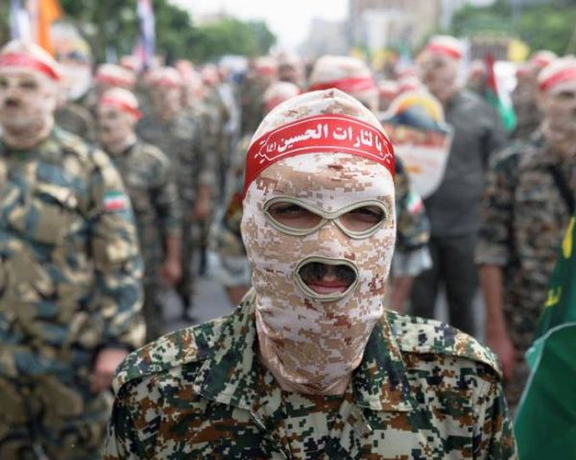
Cyprus has thwarted a terrorist attack aimed at killing citizens of Jewish origin on its territory, according to local media.

Cyprus has thwarted a terrorist attack aimed at killing citizens of Jewish origin on its territory, according to local media.
The perpetrators were reportedly linked to the Iranian Revolutionary Guards (IRGC) intelligence services.
Coordinated action between US, Israeli and local intelligence services are said to have been going on behind the scenes.
In the past, Israel and Cyprus have worked together to foil Iranian attacks on Israelis. Two years ago, an Azeri national with a Russian passport, who was acting on behalf of the Iranian Revolutionary Guards, was arrested by Cypriot intelligence services. The hitman was hired to kill an Israeli businessman.
During the last few months, Cyprus' intelligence has closely monitored potential threats, according to the report. It is believed the network arrived in Cyprus via the Turkish occupied north.
Earlier this year, the IRGC accused Israel of assassinating its military adviser Milad Haydari with an airstrike in Syria, vowing to retaliate.
Last June Turkish security forces arrested Iranians suspected of planning terrorist attacks against Israelis. According to the suspects, they were working for an Iranian intelligence cell that planned to kidnap and kill Israeli diplomats and tourists.
Iran has been implicated in many assassinations, kidnappings and terror attacks abroad against dissidents and opponents.
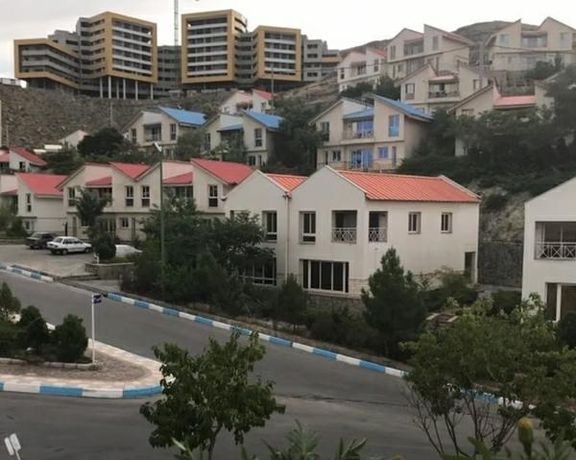
A young man has died in mysterious circumstances after allegedly falling from the sixth floor of a balcony after a police raid caught men and women reveling in the religious city of Mashhad.
It is unknown whether the young man fell or was pushed, as has long been documented as a tactic used by regime forces to eliminate opponents across Iran.
Police conducted the Thursday night raid under the auspices of inspecting for women flouting hijab rules after receiving calls from neighbors.
"A young man who was trying to escape fell from the sixth floor and lost his life,” a statement made to Iranian daily Qods claimed. “This party was a mixed-gender one with alcoholic beverages served and the case is still under investigation". Mashhad's judicial and law enforcement authorities have not yet commented on the issue.
Iran's strict Islamic laws prohibit the mixing of genders in parties and public gatherings. It is only allowed in families for men and women to hold parties in the same room. Wedding parties or other large gatherings should have separate spaces for men and women.
However, the restriction is often ignored, with some bribing local police to look the other way. In the last two years, there have been many surprise raids, particularly when young people held parties with alcohol.

A leading cleric warns economic woes may impact retention of religious students in Iran's seminaries.
Mohammad Hassan Rahimian, the manager of Jamkaran seminary near Tehran said measures must be taken to "improve academic motivation" among students with a priority on cost of living issues.
His comments suggest that clerics have also felt the bite of economic pressure although the budget of seminaries has recently increased disproportionately to the relief given to struggling Iranians.
Earlier this month, a report, hacked by an opposition group from the Iranian presidency servers, showed that the budget for seminaries increased by 96% last year.
“The money has been spent on issues like pensions for elderly clerics and support for the retirement of seminary students," the report released by MEK-affiliated Telegram account Uprising till Overthrow claimed.
Iranian media reported in January that the budget for religious organizations would increase by 130 percent, reaching $500 million, while at least 20 million more Iranians are now considered poor compared to two years ago.
Religious organizations, including seminaries, play the role of propagandists for the regime. Many clerics in Iran hold government offices and the government also annually allocates tens of millions of dollars to religious seminaries and other religious institutions that play the role of its propaganda arm.
In a recent speech, Iran's top Sunni cleric Mowlavi Abdolhamid said clerics and religious seminaries must not be funded by the government to remain independent and critical.
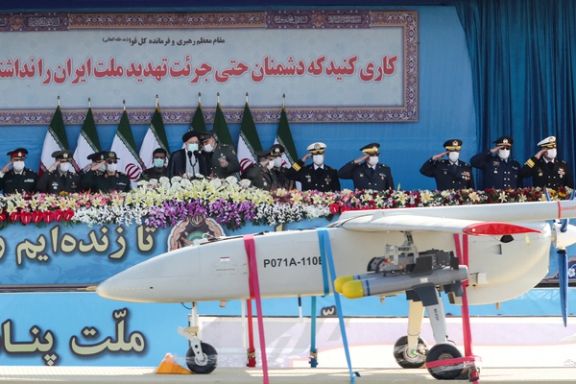
A former lawmaker and conservative politician says, "Anti-Americanism should have not been part of the Islamic Republic's ideology from the very beginning."
Ahmad Bakhshayesh speaking to Rouydad24, a relatively independent website in Tehran said that "Any country that has tensions in its relations with the United States cannot have a serious presence in the world market."
The new rhetoric by some regime insiders appears to be a justification for the Islamic Republic's sudden turn to a limited rapprochement with the United States that is presumably intended to relieve the government from economic pressures of US sanctions.
Washington and Tehran are reportedly in contact to explore a limited unofficial deal to reduce tensions. Iran would promise not to enrich uranium beyond the 60-percent level in exchange for release of its frozen funds abroad that could be as high as $20 billion.
Iran’s annual inflation rate has risen close to 70 percent and its currency has lost 50 percent of its value in the past year.
The conservative politician reiterated: "Harnessing the high rate of inflation requires time and expecting a quick solution to the country's economic problems is unrealistic."
He probably made the statement not to create exaggerated hope among Iranians about the outcome of the limited diplomatic exchanges between Tehran and Washington.
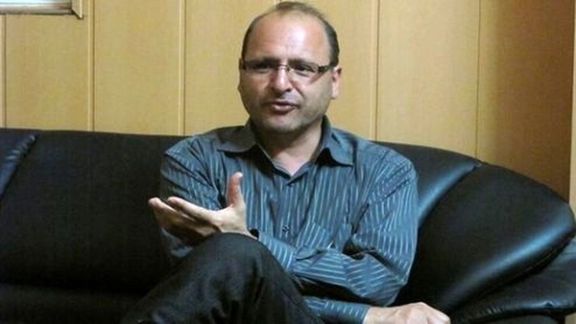
However, not everyone in Iran speaks softly about the West and particularly the United States. "Bad cops" such as IRGC aerospace commander Amir Ali Hajizadeh are still around. Hajizadeh told IRGC-linked Fars News Agency on Thursday: "We have now access to all the sophisticated technologies in the area of defense industry."
This could potentially include the know-how to make a nuclear bomb. Highlighting Iran's dual policy, Hajizadeh said that despite the breakthrough in foreign relations including the restoration of ties with Saudi Arabia, it is meaningful that President Ebrahim Raisi was personally present at the ceremony for showcasing Iran's "hypersonic" Fattah missile.
Welcoming diplomacy, Bakhshayesh maintained that to attract foreign investments, Iran should take certain steps. He did not elaborate, but the preconditions are presumably playing according to the rules of international relations, limiting uranium enrichment, not sponsoring international terrorism, and stopping regional ambitions and weapons development among other things.
Nonetheless, he said, even if measures are taken, it takes at least two to three years before prices begin to come down in the Iranian market.
In another attempt to justify the talks with Washington, Bakhshayesh said Iran used to have trade and investments by other countries including the United Kingdom and Italy. He said although the Raisi administration is trying to improve ties with Iran's neighbors, that is nothing to be compared with the benefits of having trade relations with the West.
He said although countries such as Saudi Arabia are interested in investment in Iran, we should note that Saudi Arabia, Iraq, the UAE and Qatar are Iran's rivals in the area of exporting oil, so it is in their interest that Iran remains under US sanctions.
Meanwhile, Jomhouri Eslami, the only conservative newspaper that at times criticizes the President Ebrahim Raisi’s administration, wrote Thursday that it is a miracle hardliners are suddenly in favor of talks with the United States, while they used call the previous government a traitor for advocating diplomacy.
The daily pointed out that "Even those who insisted that no one should be allowed to talk about negotiating with the United States following the killing of former IRGC Qods Force Commander Qassem Soleimani, now support the negotiations."
"Thank God that everybody in Iran has returned to the realm of rationality and thinks in terms of the country's national interests."
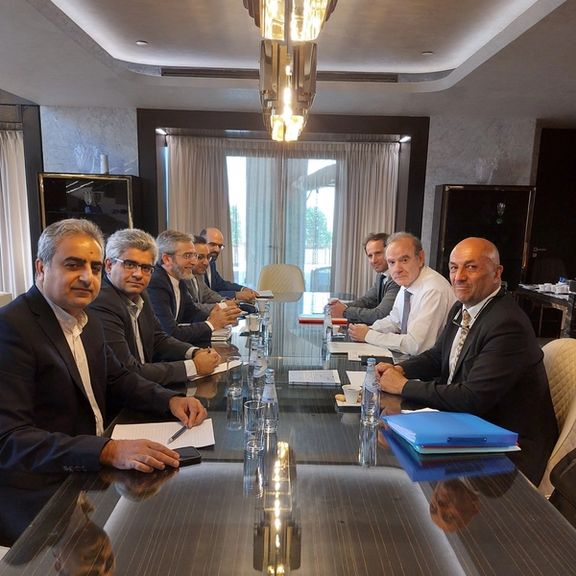
The German government and the European Union have come under fire for their talks with officials of the Islamic Republic.
Secretary General of Germany's Liberal Free Democratic Party (FDP) Bijan Djir-Sarai criticized the meeting of European Union foreign policy official Enrique Mora with Iranian Deputy Foreign minister Ali Bagheri-Kani, who is also Tehran’s chief nuclear negotiator.
The two met this week in Qatar and discussed the chances of reviving the 2015 JCPOA nuclear agreement. Iran’s nuclear program is fast advancing with a high level of uranium enrichment.
In a tweet on Friday, Djir-Sarai called the meeting “wrong and shameful”, saying there is a need to adopt a new strategy in this regard, not to stabilize the Islamic Republic.
There have been reports of an intention on the part of the United States to offer financial incentives to the Islamic Republic in return for a freeze on uranium enrichment at 60-percent purity. Critics argue that a partial agreement, not totally limiting Iran's enrichment, but giving billion of dollars to the regime is abad idea, because it will enable further adventures and strengthen its military.
His reaction was to Enrique Mora's tweet, in which he referred to intensive discussions with Bagheri-Kani in Doha, saying that “For the EU, JCPOA is the best possible, if not the only, framework to address the legitimate non-proliferation concerns of the international community on the Iranian nuclear program.”
Before Djir-Sarai, Norbert Röttgen, a member of the German Parliament, criticized the government for negotiating with the authorities of the Islamic Republic in Abu Dhabi.
By publishing the answer of the German Ministry of Foreign Affairs to his question about this meeting, Röttgen said "Now we can see why the inclusion of the IRGC in the list of terrorist groups is not progressing."
“What do you think it was about when the E3 [UK, France, Germany] and the regime [officials] came together? My tip: The atomic program and the JCPOA,” he said in a tweet.
Iranian activists and their supporters in the West have been campaigning for months to convince European countries to designate the Revolutionary Guards as a terrorist organization. The United States took that step in 2019.
In a letter, the German Foreign Ministry said the representatives of the three European countries that are JCPOA signatories met with Ali Bagheri-Kani in Abu Dhabi on June 12, but the federal government does not comment on the details of the confidential talks.
Earlier, Stephanie Liechtenstein, an independent Vienna-based journalist, quoted her sources as saying that this conversation focused on issues such as the Islamic Republic's nuclear program, military support for Russia's war in Ukraine, and the situation of foreign prisoners.
Recently, in an exclusive report, the Washington Post revealed the three demands of the Biden administration from the Islamic Republic, which were raised during the indirect negotiations between Washington and Tehran, claiming that such demands do not include the "revival of the JCPOA".
Negotiations on restoring the nuclear deal signed in 2015 between Iran and world powers (JCPOA) stalled last year. The US officials have repeatedly said their focus is not on the JCPOA negotiations any longer, but Washington is rather focused on the Islamic Republic’s suppression of its people and Tehran’s military support for Russia in the invasion of Ukraine.

Iranian Foreign Minister Hossein Amir-Abdollahian, in a call with his Russian counterpart, said on Saturday he was confident Russia would get through current events in the country.
Amir-Abdollahian "voiced support for the rule of law in all countries, including Russia - a neighbor and a friend... and said he was confident that Russia would get through this stage," state media said in a brief report about the phone call with Sergei Lavrov.
Iran and Russia do not share any borders but are close military and diplomatic allies who have fought together in Syria since 2015 to save the regime of Bashar al-Assad in the country’s 12-year civil war.
Tehran’s military ties with Moscow have expanded since the invasion of Ukraine, with Iran supplying hundreds of kamikaze drones that Russia has used against civilian and military targets. Western powers have strongly objected to Iran’s move. The United States has said that stopping its weapons supplies is one of the conditions if Iran wants to see progress in nuclear negotiations and lifting of economic sanctions.
Earlier in the day, Iranian foreign ministry spokesman had also used the same wording in describing Tehran’s reaction to a military rebellion by the head of the mercenary Wagner group, Yevgeny Prigozhin.
While Tehran might be concerned about Putin’s hold on power, Iranians opposed to the regime have expressed satisfaction that Russian leader is facing domestic turmoil.